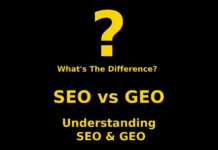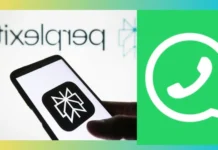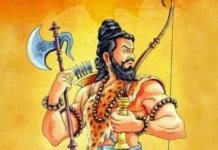Live Experiences: The Emerging Luxury in a World of AI Abundance
In 2013, Kevin Hartz, the co-founder of Eventbrite, made an interesting observation: “Live experiences are the new luxury goods.” This statement holds true today, and it’s particularly relevant in a world where technology and artificial intelligence have made almost everything accessible with just a few clicks.
The rise of e-commerce giants like Amazon has commoditized physical products. You can now purchase an overwhelming variety of items online, from tennis shoes to spatulas to sweatpants. The convenience of this abundance has, in a way, diminished the satisfaction of owning physical possessions. This is where live experiences come into play.
The Value of Finite Experiences
Human Connection in the Age of Artificial Intelligence: The New Status Symbol
Experiences, by their nature, are finite. There are only a limited number of opportunities to see your favorite musician live in concert, whereas you can choose from thousands of tennis shoe options on Amazon. As a result, the demand for live experiences, like concert tickets, skyrockets, while the prices of physical products remain competitive.
This dynamic of supply and demand is not exclusive to the physical world. It is poised to manifest in the realm of technology through large language models and generative AI.
Unlimited Content vs. Finite Resources
The Rise of AI: Why Humans are Becoming the Ultimate Luxury
AI has reached a point where it can autonomously generate a plethora of content, from text and code to images and music. This technology is becoming more accessible by the day. While this may seem like a positive development for society, it has its consequences.
In a world of machine-generated abundance, the value of human-centered services and experiences will increase. As Kevin Hartz puts it, “What can’t be commoditized is finite resources like real estate, travel, witnessing a Mediterranean sunset, or surfing in Fiji. These are the luxury goods of the power elite.”
The Emerging Role of Humans
Human Connection in the Age of Artificial Intelligence: The New Status Symbol
As AI continues to advance, we’ll see a growing demand for human-centered services. Here are a few examples:
1. Personal Chefs
- Despite the automation of restaurants, some individuals prefer the culinary expertise of personal chefs who can create bespoke meals in the comfort of their homes.
2. Exclusive Tutoring
- While AI tutor bots are becoming more prevalent in education, the wealthy will seek exclusive access to the best human tutors for personalized learning.
3. Human Financial Advisors
- Even as robo-advisors manage investments, affluent individuals will seek the expertise of human financial advisors to oversee their wealth.
4. Personalized Marketing
- With AI-generated marketing content flooding inboxes, a hand-crafted email from a real human will stand out as a rare and engaging communication.
5. Bespoke Education
- High-end private schools continue to emphasize the importance of small class sizes and personal attention, highlighting the demand for human-centered learning environments.
6. Human-Crafted Artifacts
- In some cases, people are willing to pay for handcrafted, unique products. For instance, one tech billionaire hires a personal carpenter to create wooden toys for their children.
7. Expert Money Managers
- Managing substantial fortunes still requires human expertise, as AI models struggle to adapt swiftly to market changes, and even quantitative hedge fund firms explore ways to incorporate human judgment.
The Era of Social Media Bots
Exploring the Future: Humans as the Ultimate Status Symbol in an AI-dominated World
Social media is another arena where AI is making inroads. Mark Zuckerberg’s Meta recently introduced AI assistants with different personalities, which users can interact with on the platform. This innovation, while impressive, further emphasizes the notion of AI-generated content overwhelming human-created content.
AI in Healthcare
The Rise of AI: Why Humans Are Becoming the Ultimate Luxury Item
AI models are proving their worth in the field of medicine. However, when it comes to the health of their loved ones, individuals with financial means will always seek the expertise of human doctors and specialists. Medical concierge services, offering direct access to human health professionals, have gained prominence.
Utility, Value, and Signaling
The Future of Luxury: Humans in a World Dominated by AI
In conclusion, the adoption of AI is a nuanced process. It revolves around the concepts of “utility, value, and signaling.” AI excels at handling routine, utility-driven tasks, but there are situations where humans offer more value. Furthermore, certain activities and experiences remain exclusive to humans and hold intrinsic value, signifying individual achievements and the preservation of finite resources.
In a world where AI-generated abundance is the norm, the rarity and exclusivity of human-centered services and experiences will emerge as the true luxury goods of the future.
FAQs
1. What are “finite resources” in the context of luxury goods?
Finite resources refer to experiences or services that are inherently limited or unique, such as witnessing a rare natural event, personalized services from experts, or exclusive access to human professionals.
2. How is AI impacting the world of marketing and emails?
AI is making it easier to generate marketing content, resulting in an influx of automated emails. As a consequence, it can be challenging for marketers to engage their audience, and personalized, human-crafted emails become more valuable.
3. Why do some individuals prefer personal chefs over restaurant dining?
Personal chefs offer bespoke culinary experiences, tailored to individual preferences and dietary requirements, creating a more personalized and exclusive dining experience.
4. What role do humans play in managing investments in the era of AI?
Despite the rise of robo-advisors, human financial advisors are still sought after by affluent individuals for their ability to provide personalized and adaptive investment strategies.
5. How is the concept of “utility, value, and signaling” relevant in the context of AI adoption?
“Utility, value, and signaling” explain the different roles of AI and humans in various tasks. AI excels at utility-driven tasks, while humans provide value in situations requiring expertise or exclusivity, and signaling pertains to showcasing individual accomplishments through human-centered experiences.
The Balance Between Automation and Human Touch
As we navigate this evolving landscape where AI continues to advance, it’s crucial to strike a balance between automation and the human touch. There’s no denying that AI can significantly enhance efficiency and convenience in various aspects of our lives, but it cannot fully replace the emotional and personal connections that come with human interactions.
The Human Element in Technology
Even as AI and automation continue to revolutionize industries, there are areas where the human element remains irreplaceable. Here are some key examples:
8. Mental Health and Emotional Support
- While AI-driven chatbots and virtual therapists are becoming more prevalent, the empathetic understanding and support provided by human mental health professionals are invaluable.
9. Creativity and Artistry
- AI can create art and music, but the essence of creativity and artistic expression lies in the human soul. Artists, writers, and musicians infuse their emotions and experiences into their work, making it unique and emotionally resonant.
10. Personal Relationships
vbnetCopy code
- No amount of AI can replace the depth of human relationships, whether it's with friends, family, or romantic partners. The bonds formed through shared experiences, empathy, and understanding are irreplaceable.
11. Education and Mentorship
vbnetCopy code
- While AI can provide valuable educational resources, the mentorship and guidance offered by knowledgeable and experienced human teachers play a crucial role in shaping individuals' futures.
12. Healthcare and Compassion
bashCopy code
- Healthcare professionals not only provide medical expertise but also offer compassion and emotional support during challenging times, a human element that AI cannot replicate.
The Evolving Definition of Luxury
In this changing landscape, the definition of luxury is evolving. It’s no longer solely about possessing material wealth but also about experiencing the rare, the unique, and the human. Luxury is found in the personalized services, the emotional connections, and the exclusivity that only humans can provide.
Embracing the Future
As we move forward in a world where AI and automation are pervasive, it’s essential to embrace the potential of technology while preserving and cherishing the distinct qualities that make us human. In doing so, we can ensure that the concept of “luxury” continues to evolve in a way that enhances our lives and celebrates the human experience.
In conclusion, the emergence of AI-driven abundance and the increasing value placed on human-centered services and experiences highlight the complex interplay between technology and humanity. While AI contributes to efficiency and convenience, it’s the human touch that adds depth, emotion, and a sense of irreplaceable value to our lives.
FAQs
1. How is AI impacting the field of mental health and emotional support?
AI-driven chatbots and virtual therapists are becoming more common, but the empathetic understanding and support provided by human mental health professionals remain irreplaceable.
2. Can AI fully replace human creativity and artistry?
AI can generate art and music, but the emotional depth and personal experiences that human artists infuse into their work make human creativity and artistry unique and emotionally resonant.
3. What role do human relationships play in the era of AI?
Human relationships, based on shared experiences, empathy, and understanding, offer a depth and emotional connection that AI cannot replicate.
4. Why is mentorship by human teachers important in education?
Human teachers provide not only knowledge but also mentorship, guidance, and a personal touch that can significantly impact a student’s growth and development.
5. How do healthcare professionals contribute to the concept of luxury?
Healthcare professionals offer not only medical expertise but also compassion and emotional support during challenging times, adding a human element to the concept of luxury in healthcare.
Navigating the Future of Luxury
The path ahead is one of synergy. The harmonious coexistence of AI-driven efficiency and human-centered experiences can offer us the best of both worlds. Here’s how we can navigate this evolving landscape:
13. Embracing Collaboration
- The future luxury market could involve partnerships between AI-driven convenience and human exclusivity. For example, luxury hotels might use AI for streamlined check-ins but maintain a staff of well-trained concierge experts for personalized services.
14. Personalization is Paramount
- Tailoring experiences to individual preferences remains at the core of luxury. AI can help gather data and insights, but it’s the human touch that translates this information into meaningful, customized experiences.
15. Preserving Traditional Craftsmanship
- Many luxury goods, like handcrafted jewelry or couture fashion, are celebrated for their intricate craftsmanship. This artistry is a testament to human skill and creativity, and it’s a vital component of the luxury market.
16. Innovating with Technology
- Luxury brands can leverage technology and AI to enhance their offerings. For instance, AR and VR technologies can provide immersive, unique experiences that blend seamlessly with human hospitality.
17. Ethical and Sustainable Luxury
- As the definition of luxury evolves, so do our values. Many consumers now seek ethical and sustainable options. Luxury can encompass human-conscious practices, such as fair labor, sustainable sourcing, and responsible business ethics.
18. Curating Exclusive Moments
- Luxury can also be about curating exclusive moments that tap into human emotion and connection. This might involve bespoke travel experiences, intimate live performances, or personalized art exhibitions.
19. Education and Mentorship
- In education, a blend of AI-driven personalized learning and human mentorship can create a holistic and valuable learning experience. Students can receive tailored guidance while also benefiting from the efficiency of AI-assisted learning.
20. Celebrating Diversity
- Luxury isn’t a one-size-fits-all concept. It celebrates the diversity of human culture and experience. It embraces different tastes, preferences, and traditions, allowing individuals to find their own definition of luxury.
In the coming years, the luxury market will continue to evolve, and its definition will expand to include a more profound appreciation for the human touch amidst the world of AI abundance.
In the end, the “luxury” of tomorrow will be a blend of convenience, exclusivity, and meaningful experiences. It will be about celebrating the human spirit while embracing the tools and advancements that make life more efficient and accessible.
As we move forward, let’s remember that technology is here to serve us and enhance our lives, but it’s the human experiences and connections that truly make life rich and meaningful.
FAQs
6. How can luxury brands leverage technology without losing their human touch?
Luxury brands can use technology to enhance their offerings, such as incorporating AR and VR for immersive experiences. They can also use data-driven insights to tailor experiences to individual preferences while retaining their human hospitality.
7. What is ethical and sustainable luxury?
Ethical and sustainable luxury refers to luxury products and services that are produced with a focus on fair labor practices, sustainable sourcing, and responsible business ethics. Consumers are increasingly valuing products that align with their ethical and environmental concerns.
8. How can education blend AI-driven learning with human mentorship?
In education, AI-driven personalized learning can provide students with tailored guidance and resources. Human mentorship complements this by offering emotional support, guidance, and a personalized touch, creating a holistic learning experience.
9. What is the future of luxury in a diverse world?
The future of luxury embraces diversity and individuality. Luxury experiences and products celebrate different tastes, preferences, and cultural traditions, allowing individuals to define their own unique sense of luxury.
Embracing a New Era of Luxury
The evolving landscape of luxury signifies a departure from traditional notions of opulence and extravagance, shifting towards a more holistic appreciation for what is genuinely valuable in our lives. Luxury is no longer confined to the possession of rare and expensive goods; it encompasses experiences, emotions, and the celebration of the human element.
21. The New Elegance
- The new era of luxury is characterized by a sense of elegance that combines the contemporary with the timeless. It’s about embracing technology’s convenience while cherishing the enduring beauty of human connection.
22. Luxury for Everyone
- Technology has made luxury more accessible to a broader audience. It’s about democratizing the aspects of luxury that were once reserved for the elite, ensuring that everyone can experience moments of exclusivity and connection.
23. A Sense of Purpose
- Luxury can also be about purpose. Brands and experiences that align with a deeper purpose, such as environmental sustainability, social responsibility, and ethical practices, resonate with the values of many modern consumers.
24. The Art of Storytelling
- The luxury of tomorrow lies in the art of storytelling. It’s about crafting narratives that engage and immerse individuals in unique experiences. These stories may be told through technology, but they are ultimately brought to life by the human experience.
25. Balancing Convenience and Connection
- The future of luxury is a delicate balance between the convenience of AI-driven efficiency and the irreplaceable connection created by human interaction. It’s about seamlessly blending these two elements to provide a harmonious and enriching lifestyle.
In conclusion, the evolution of luxury is a reflection of our evolving values and the remarkable impact of technology on our lives. It’s a celebration of the human spirit, the power of human connection, and the meaningful experiences that make life truly rich.
As we embrace this new era, let’s remember that luxury is not defined solely by what we have but by the experiences we share, the connections we make, and the values we uphold. It’s a journey of self-discovery, personalization, and the pursuit of a life well-lived.
The future of luxury is a fusion of innovation and tradition, of technology and humanity. It’s a world where the essence of luxury is not confined to possessions but extends to the essence of being human.
FAQs
10. What does “luxury for everyone” mean in the context of the new era of luxury?
“Luxury for everyone” signifies that the evolving concept of luxury is more inclusive, making elements of luxury accessible to a broader audience. It emphasizes democratizing experiences and connections that were once considered exclusive.
11. How does luxury connect with a sense of purpose?
Luxury in the modern era is not only about opulence but also about purpose. Luxury brands and experiences that align with values such as environmental sustainability, social responsibility, and ethical practices are appealing to consumers who prioritize these principles.
12. What is the role of storytelling in the new era of luxury?
Storytelling is a crucial aspect of the new era of luxury. It involves crafting narratives that engage and immerse individuals in unique experiences. While technology may aid in storytelling, it’s the human experience that brings these stories to life.
13. How does the new era of luxury balance convenience and connection?
The new era of luxury seeks to balance the convenience of AI-driven efficiency with the irreplaceable connection created by human interaction. It aims to seamlessly blend these elements to provide a harmonious and enriching lifestyle.
Crafting a Personalized Luxury Lifestyle
As we step into this new era of luxury, it becomes increasingly apparent that luxury is not a one-size-fits-all concept. It’s about crafting a personalized lifestyle that aligns with individual preferences, values, and aspirations. Here’s how individuals can navigate this evolving landscape:
26. Defining Your Own Luxury
- Take the time to define what luxury means to you. Is it the convenience of AI-driven services, the connection with unique human experiences, or a blend of both? Your definition of luxury should reflect your personal values and desires.
27. Embracing Technology Mindfully
- Technology is a powerful tool, but it’s essential to use it mindfully. It should enhance your life, not dominate it. Embrace technology where it adds value, but don’t let it overshadow the beauty of human interactions.
28. Seeking Authentic Experiences
- In a world where authenticity is highly valued, seek out experiences that resonate with your true self. Whether it’s travel, art, cuisine, or education, look for experiences that touch your heart and soul.
29. Balancing Convenience and Connection
- Find the perfect balance between the convenience of technology and the human connection that adds depth to your life. It’s the blend of these elements that creates a lifestyle that’s both efficient and emotionally fulfilling.
30. Connecting with Brands that Align with Your Values
- Support brands and experiences that align with your values, whether it’s ethical production, sustainability, or social responsibility. This not only enriches your life but also contributes to a better world.
31. Sharing with Others
- Luxury isn’t just about what you enjoy; it’s also about the joy of sharing. Share your experiences, your values, and your discoveries with others. These shared moments create a sense of community and connection.
In this new era, the essence of luxury is a reflection of your individual journey. It’s about embracing what brings you happiness, fulfillment, and a sense of purpose. It’s an evolving concept that adapts to your evolving self.
As we look forward to this future of luxury, let’s remember that it’s not about conforming to external standards but about celebrating what makes us unique. It’s a journey of self-discovery, personalization, and the pursuit of a life that reflects your true essence.
The luxury of tomorrow is yours to define, craft, and celebrate—a personalized, mindful, and deeply meaningful expression of your individuality.
FAQs
14. How can individuals define their own luxury in the new era?
Individuals can define their own luxury by considering their personal values, desires, and aspirations. Luxury should reflect what brings them happiness and fulfillment, whether it’s the convenience of technology, unique human experiences, or a combination of both.
15. How can individuals balance convenience and connection in their lives?
Balancing convenience and connection involves finding the right equilibrium between the efficiency of technology and the depth of human interaction. It’s about integrating both elements to create a lifestyle that is efficient and emotionally fulfilling.
16. Why is it important to connect with brands that align with one’s values?
Connecting with brands that align with one’s values not only enriches one’s life but also supports ethical production, sustainability, and social responsibility. It allows individuals to contribute to a better world while enjoying meaningful experiences.
17. How can individuals share their luxury experiences with others?
Sharing luxury experiences with others involves sharing moments, values, and discoveries with a sense of community and connection. It enhances the joy of luxury by extending it to those around you, creating a richer and more inclusive lifestyle.
The Global Evolution of Luxury
As we explore the global landscape of luxury in this new era, it’s essential to recognize that luxury is not confined by borders or cultures. It’s a universal concept that transcends geographical boundaries. Here’s how the global perspective on luxury is evolving:
32. Cultural Diversity
- The concept of luxury varies across cultures. Luxury in one part of the world might be entirely different from another. Embrace the beauty of cultural diversity and be open to experiencing luxury in various forms.
33. Global Access
- Thanks to technology, people around the world now have access to a global array of luxury experiences. Whether it’s enjoying a virtual tour of a world-renowned museum or savoring a dish from a distant cuisine, global access broadens the definition of luxury.
34. Sustainability and Social Responsibility
- The global luxury market is increasingly shifting towards sustainability and social responsibility. Brands and consumers alike are recognizing the importance of ethical practices and environmentally conscious choices in luxury.
35. Celebrating Unique Traditions
- Luxury often involves celebrating unique traditions and craftsmanship from different regions. Whether it’s Italian leather, Japanese ceramics, or Indian textiles, these traditions add a rich layer to the global tapestry of luxury.
36. Cultural Exchange
- Engage in cultural exchange through luxury experiences. Embrace the opportunity to learn about and appreciate the traditions, art, and cuisine of different cultures. It’s a way to connect with the world and expand your horizons.
In the global evolution of luxury, it’s not just about embracing the world; it’s also about recognizing that we all share a common desire for beauty, meaning, and connection. Luxury is a global language that transcends words, and it’s a celebration of the human spirit that unites us all.
As we journey forward in this new era of luxury, let’s remember that it’s an inclusive and enriching experience that can bring people from diverse backgrounds and cultures closer together. It’s a celebration of our shared humanity, our desire for the beautiful, and our appreciation for the meaningful.
FAQs
18. How does cultural diversity influence the concept of luxury?
Cultural diversity plays a significant role in shaping the concept of luxury. Luxury can vary greatly across cultures, reflecting the unique traditions, values, and preferences of different societies.
19. What is the role of global access in the evolution of luxury?
Global access, facilitated by technology, allows people to experience luxury from around the world. It broadens the definition of luxury by offering access to a wide array of experiences, products, and traditions.
20. Why is sustainability and social responsibility important in the global luxury market?
Sustainability and social responsibility are gaining importance in the global luxury market as brands and consumers recognize the significance of ethical and environmentally conscious practices. It aligns luxury with values that are increasingly important in a global context.
21. How can individuals engage in cultural exchange through luxury experiences?
Individuals can engage in cultural exchange through luxury experiences by actively seeking out and participating in experiences that celebrate the traditions, art, and cuisine of different cultures. It’s a way to connect with the world and expand one’s cultural horizons.























